|
My partner, Marla Rose, and I have been working together to try and expand the vegan community for more than a quarter-century, and a few people have referred to us as OG (original gangster) vegans, which is a term I accept with pride and humility because there were obviously so many who came before us. During all this time, we have spent a great deal of time pondering the meaning of the word that drives our philosophy and our life’s work. Pretty much since the beginning, we have been taunted by people questioning our commitment and understanding with non-questions such as, “Aren’t those shoes leather?” or “What about all the mice who die in a wheat harvest?” These barbs were almost universally tossed at us from carnophilic trolls who then quickly disappeared into the crowd or the ether. Lately, though, these trolls have largely been replaced by “Veganer Than Thou” trolls, most of whom loudly claim that we should stop calling ourselves vegan, because we support the covid vaccines. Their claim is that since these vaccines have been tested on animals, that anyone who takes them, or, worse yet, actually supports them (egads!) is not only not vegan, but is the sworn enemy of the animals we purport to save. Our comment threads have contained many missives such as these, including some who have demanded that we change our name from Vegan Street to something like Veganish Street. So did we betray the vegan movement by getting our covid shots? Let’s think about that. The reason the covid vaccine was tested on animals is that the FDA (US Food and Drug Administration) requires that all medicines, medical procedures and anything of medical significance must be tested on animals. Indeed, this is true not just in the U.S. but of the medical organizations that regulate and oversee every country. This applies not only to life-saving medicines like penicillin or insulin, but also such common products as aspirin and antacids. Yes, all of these products must, by law, be tested on animals. And it’s not only medicines. If you eat any food that contains any ingredient developed in the last 60 years, that ingredient has been tested on animals. That pea protein found in so many great vegan products? Some laboratory animals somewhere once suffered in its development and release. Is all this animal testing absolutely necessary for human health? This is arguable, and we would certainly argue that it is not. There are far more modern and accurate methods to determine safety. However, we can make a far greater difference by publicly challenging the vivisection and seeking and promoting alternatives than we can by not eating veggie burgers or taking a vaccine. And what about all the many other ways that animal exploitation has invaded our lives? If you drive a car or ride in a bus or on a bicycle, the tires beneath you may well have been made using animal-derived stearic acid. Or that label on your jar of olives or peanut butter is likely held in place using a glue that contains whey. There are hundreds, maybe thousands of products we use regularly that contain ingredients or processes of animal origin. Even if you are eating a full-on whole-foods-plant-based diet, the commercially grown fruits, vegetables, grains and legumes you eat were almost certainly grown using animal manure, and very likely were at some point treated with pesticides. You could perhaps provide all of your food from your own veganic garden, but even then, it’s pretty difficult to till the soil without occasionally slicing into an earthworm. So is it possible to live a 100% purely vegan life? It doesn’t appear so. . . . How can we make peace with that? Do we just throw up our arms, give up on our values and start eating animals again?
It turns out that the answer to that question is as old as the word “vegan” itself. In 1944, when the absolute OG vegans, Donald Watson and his colleagues at the newly formed Vegan Society were asking the same questions I’m asking here, they came up with what is probably the best definition of veganism ever, one that both the UK and US Vegan Society still use today, and that is embraced by many other groups, including us at Vegan Street. Here it is in its entirety: "Veganism is a philosophy and way of living which seeks to exclude – as far as is possible and practicable – all forms of exploitation of, and cruelty to, animals for food, clothing or any other purpose; and by extension, promotes the development and use of animal-free alternatives for the benefit of animals, humans and the environment. In dietary terms it denotes the practice of dispensing with all products derived wholly or partly from animals." The key words for our purposes here are “as far as possible and practicable.” They realized that they lived in a world where eating and exploiting animals was the accepted norm and that it simply wasn’t possible to avoid this exploitation altogether . For us, those words mean that it is not responsible to practice a kind of purity of veganism that promotes harmful, dangerous behaviors during a global health crisis of the magnitude we have been experiencing for the past two-plus years. The OG vegans believed that if ending animal exploitation that were even possible, it would take many decades at the least before veganism would dictate policy. It will likely take many decades yet, even though there are a great many of us working to bring this change about. Until that day comes, let’s all just be as vegan as possible and practicable. That much is a lot.
3 Comments
To my darling Ruby-Mae, also known as Ruby, Rubily-Boobily, Roto-Rooter, the Rooster, Rue and Ru-Ru (so far) - Happy first birthday, baby! I realize as I sit here that I have never had an animal where I knew their actual birthday before you. All my other animals have been rescues with nebulous-at-best origin stories, usually strays, so we just celebrated our “gotcha” days, which is a perfectly lovely tradition but I have also been embracing the novelty of having this extra bit of information. I have also not regretted adopting our other animals as adults one iota (save for our Clara Bow, found in our backyard as a newbie kitten) but there is also little bit of longing attached for me to have been able to at least see a picture of them as babies. With you, it was different. I not only got to see you as a puppy this past year but experience you and all those needle teeth, those sweet little grunts, that soft belly, those floppy ears, that delicious puppy breath. Even your poop, even in unwanted places, was adorable. You came into my life when I was at a crossroads of trying to decide if I was able to take another chance at love, at trust, at vulnerability, at possible heartbreak after a profoundly traumatic, sudden loss that capped off two very difficult and stressful years. Ruby-Mae, our lives together started like this: On February 16, a friend (you might remember her, Stacey), who crossed state lines to rescue your pregnant mama Lulu, posted that four puppies had been born in her home. (Stacey thought that was it but two more would follow, making you one of six.) You were part of the first four, Ruby. Somehow Stacey’s post made it to my eyes. I lingered on it for a minute then closed my laptop. I wanted to pipe in but I also know my tendency towards leaping before I look. I also didn’t know what to say and my heart was just so tender. I went back. In my mind, seriously, I kid you not, in my memory, I returned to the post the next day. Nope. I just checked out the timestamp on that. Fifteen minutes after Stacey’s original post, I commented. To me, this took enormous self-discipline, not fifteen minutes, but nearly a thousand seconds of being calm and moderate. Ever-so gingerly (even if it did not come across as such, I suck at playing hard to get), I intimated that if there were still households needed, I would toss my hat in the ring as a potential adopter. Stacey ever-so gingerly acknowledged my comment with a thumb’s up circled in blue. I put this interaction in the back of my mind, telling myself little clichés that managed to be true: “If it is meant to be, it will be.” “At the very least, I know my heart is ready to adopt again.” I tried to put it out of my head and just carry on. Meanwhile, I was dreaming up names, making more room in my heart for you. Fast forward to March 21, when you and your littermates started being introduced. As you were born on Mardi Gras, your initial names were all New Orleans-centric, and you were originally Roux, future Ruby-Mae; your picture was in my feed, though I still didn’t know if I would be an adopter of you or anyone else. On March 28, I got word from Stacey that if I were still wanting to adopt, she had a puppy in mind for our family. Did I still want to adopt? The puppy was you, soft face, floppy ears, cutest paws, your expression a little tentative but confident, too, the sassy head tilt, easily held skyward by Stacey’s gentle hands. I stared at your picture. I gasped at every little whisker and obsessed over your sweet eyebrows. You were looking through the screen to me: “Mom?” I said, “Baby.” I said your name over and over until it morphed into Ruby-Mae. I was incredulous and it also felt as natural as anything has ever felt that we would click together like puzzle pieces. I said yes. . . . Puppy love is a real thing. I already knew this but I remembered it in a more real way as I geeked out over your picture. The deeper love was to come but it was immediate. You nestled into me that blurry day as we drove home from Stacey’s house (April 13), and I knew. There was no doubt that we were meant to be and that you, in fact, had rescued me. What can I say, Ruby? One way with countless examples is how you have helped to heal me: This year you experienced seasons, nature and life for the first time and I got to experience it through you. Your first swim. Your first flowering bushes in bloom. Your first Gay Pride parade walking past. Your first autumn. Your first sticks to chew up. Your first redbud pods. Your first acorns and pine cones. Your first walk in the woods. Your first animatronic Halloween display. (No likey!) Your first trick-or-treaters. (Same.) Your first leaf piles. Your first snow. Your first eerie tornado warning the first Tuesday of every month. Your unabashed curiosity and enthusiasm for life was a wellspring for me. I got to not just observe these things passively but look at and experience the world with fresh eyes, a less jaded perspective. This alone has been immeasurably valuable at a time when I was starting to get used to feeling more than a little numb inside. One of the things I missed most about Romeo, your brother in the spirit realm, was how just looking at him, I could get a hit of dopamine. How he made me smile with all of his perfect ways: The way he bounded down the steps from upstairs to join me on my yoga mat in the morning; the way he looked when he was sun-dappled on the couch in my office; the way he sighed in his sleep; the way he curled behind and between my legs to sleep; the way he was an ambassador in our neighborhood, making all the good people feel special, especially the older ladies; the way I knew that even if it was A Very Bad Day, even when I came close to really disliking myself, he was an ardent fan. Losing him was losing a lifeline to everything: Not just the loss of this magnificent being who meant everything to me but losing all the endless, everyday magic he sprinkled on all of life. You have endless, everyday magic, too, Ruby-Mae. Your curiosity and intelligence. Your fierce self-confidence and loyalty. Your razor-sharp comedic instincts and dazzling sensitivity. You have given me this daily reminder: That this world, capable of profound suffering and unfathomable cruelty, could also create a being as exquisite as you. As Lorenz Hart wrote in “My Funny Valentine,” you make me smile in my heart. Every day of my life, I get to smile because you’re in it, Ruby-Mae. Happy birthday, sweet girl. I am so grateful for you. Love, Mom . . .
“I may not agree with you, but I will defend to the death your right to make an ass of yourself.” - Oscar Wilde It is one of the most treasured tenets in the United States, but free speech has never meant consequence-free speech. While you won’t likely be imprisoned for your words, you can be sued for slander or libel and pay damages. Words can lead to pushback or even public uproar. A place of employment can determine that you are too big of a liability to continue being associated with because of the free speech you exercise; verbal abuse can lead to divorce. It isn’t a matter of suppression or censorship. Freedom of speech carries not only consequences to it but should be understood as a two-way street: Just as you can speak your words, people can receive and respond to those words within the framework of their legal rights, too, which includes satirizing, journalism, protests, boycotts and, well, there are nearly 200 forms of nonviolent activism that are recognized by the Albert Einstein Institution as options to the aggrieved. You have your right to free speech but that doesn’t mean it is free of repercussions.
As vegans, we know that freedom of speech cuts both ways and that we can promote veganism but expect that lawful recrimination is always on the table, especially in the era of social media. We know this. It is also a given – I think, at least – that if we spread exaggerations or misinformation, it is not only going to make people skeptical of us as trusted sources, it could result in retractions, removal of content and more. That is part of the responsibility we bear as part of this two-way street of communication. If there’s anything we should understand at this point of the pandemic, it’s that we don’t live in isolated bubbles. Our words and actions exist within a larger community and thus affects more than us as individuals. This isn’t exactly news. You’d think it was, though. Two incidents are popping up in my mind as recent examples of speech being free, yes, but not without consequences. One was pretty small in scope: The pushback I was happy to see about a meme that reinforces shaming (and misinformed) attitudes about disease and “healthy” vegan diets making you essentially bulletproof. Yes, they are free to post memes that promote such notions and critics are free to, among others things, call it out in the comments, unlike the page, or, heh, write critically about it. Them’s the breaks, as the phrase does. Spotify and Joe Rogan’s recent controversy is another example. I won’t describe it because most people have already heard about it and if not, it’s easy enough to research, but I will say that I consistently saw people misunderstand and/or misconstrue the basic principles of free speech, censorship and the right to maintain standards. No one is owed a platform. If I submit an article to a publication and an editor finds that it is riddled with wrong conclusions and misinformation, the publication rejecting it is not an example of them censoring me. It is an example of the publication maintaining certain professional and ethical standards for what they put on their platform. In the example of Rogan, amplifying disinformation slingers and cultivating confusion to his massive listenership during a public health crisis the likes of which no one alive has ever experienced before, it is beyond simply differences of opinion or shutting down those who have a different point of view. Sowing confusion and spreading disinformation is demonstrably adding strain to our already overwhelmed front line workers and killing people. What Neil Young and now other artists are doing is leveraging the power they have on the same platform as Rogan to try to force their hand. Some, like Young, are more “Rogan or me,” and others, like Brené Brown, are asking Spotify to come up with a disinformation policy that is respectful of free speech, transparent and consistently applied before they will be available on the platform again. As consumers, we can decide to cancel a Spotify membership. As people in the world, we can get the word out and educate. Again, these are among the panoply of lawful and reasonable responses available to those disaffected by Rogan’s content. None of this is censorship. There are a range of consequences to speech; unlike the disinformation spread by Rogan and company, it is not deadly. The fact that consequences exist to speech is not silencing or suppressing. It is simply reality to anyone who is older than a toddler. |
AuthorWrite something about yourself. No need to be fancy, just an overview. Archives
May 2024
Categories |
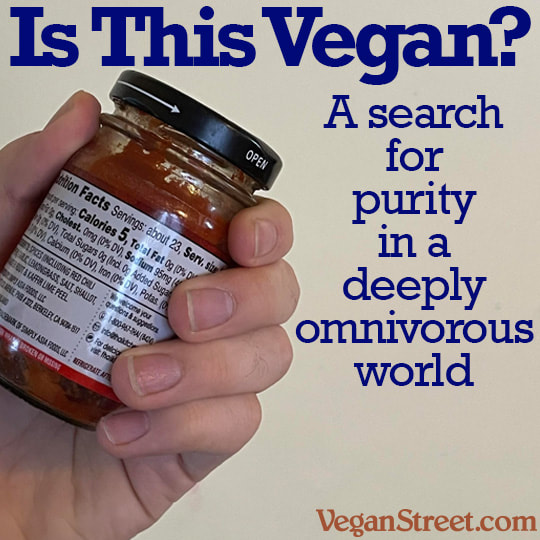
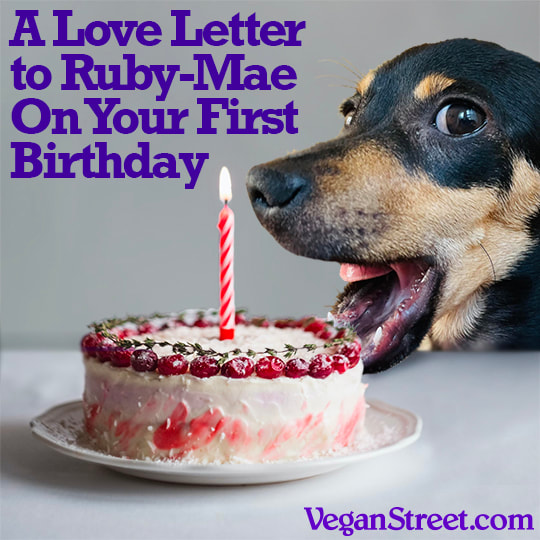
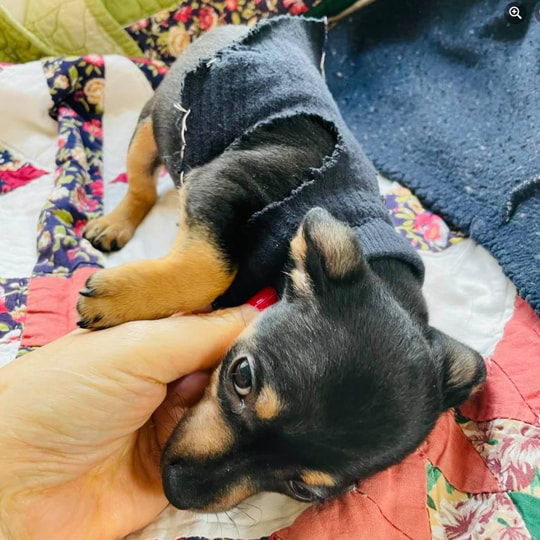
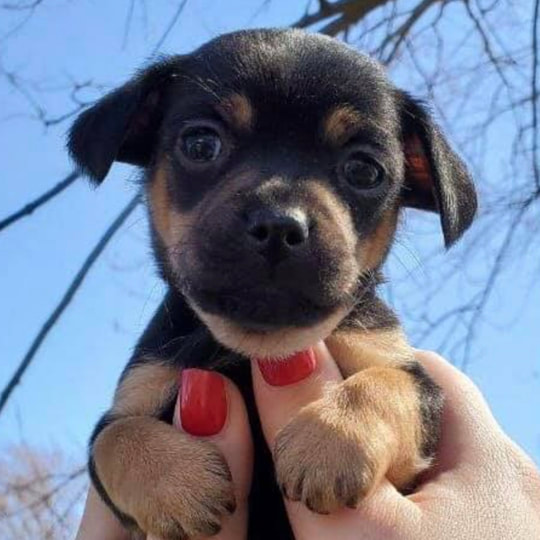
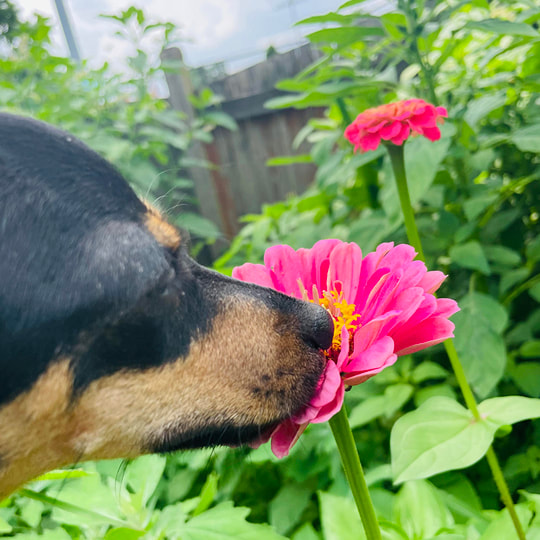
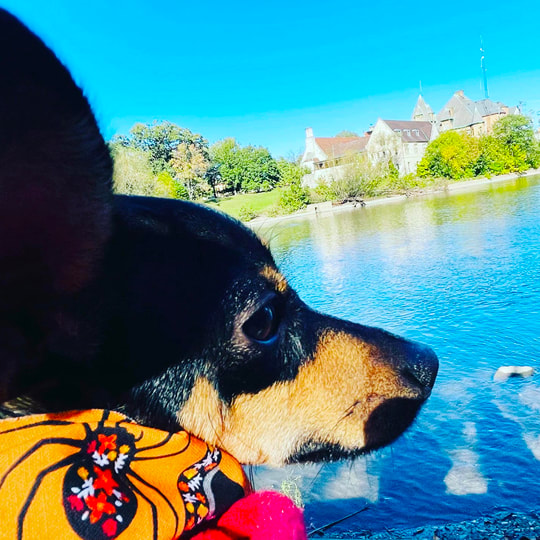
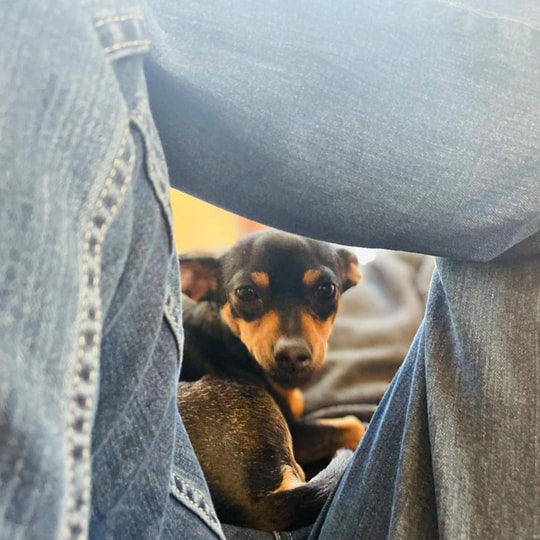
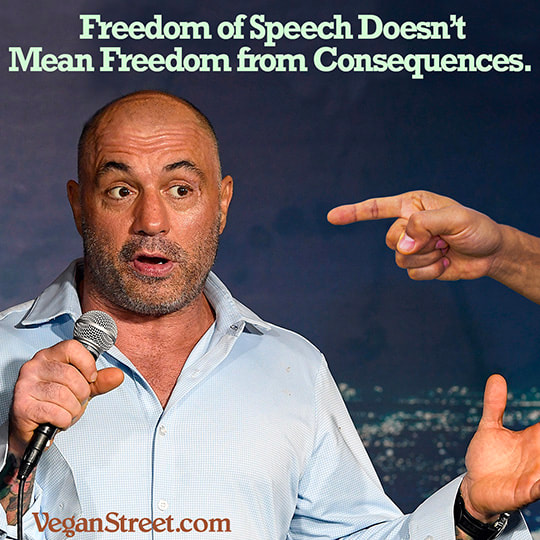
 RSS Feed
RSS Feed